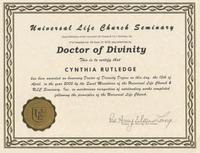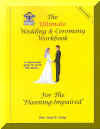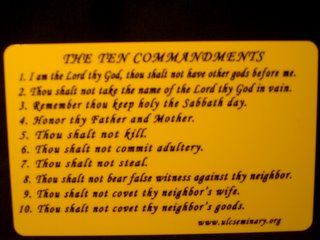INTRODUCTION:
Please turn to (Mt. 5:21-26).
Before we study this passage, I need to briefly explain the setting that prompted Jesus to teach on the subject of anger.
In (Mt. 5:20), Jesus said, For I tell you that unless your righteousness surpasses that of the Pharisees and the teachers of the law, you will not enter the kingdom of heaven.
Imagine for a moment how disturbing that statement must have been for the Jewish citizens of that day. In their eyes, the Pharisees and the teachers of the law were the most spiritually minded people of their day. They were looked up too much like Ministers, Elders, and Deacons are in our day.
They were the spiritual leaders. They were the shepherds of the people of God. Everyone looked up to them for guidance in the laws of God.
However, Jesus said to the people, that unless your righteousness surpasses that of the Pharisees and the teachers of the law, you will certainly not enter the kingdom of heaven.
The people who heard Jesus say that must have been wondering, How can we possibly become more righteous than the Pharisees and the teachers of the law?
Well Jesus answers that question in (Mt. 5:21-5:48). In the following verses, Jesus outlined some examples of the how. Six times he will say, You have heard it said but I say to you.
With these words Jesus shows the true intent of Gods law. The Pharisees and the teachers of the law lived and taught one way, however Jesus points out that they didnt go far enough. They obeyed the laws outwardly, however, Jesus wants His disciples to obey them inwardly as well. Not only does God measure our actions by His Word but also our attitudes. Not only are there external measurements but internal measurements as well.
IF WE WANT OUR RIGHTEOUSNESS TO SURPASS THAT OF THE PHARISEES AND TEACHERS OF THE LAW, AND IF WE WANT TO ENTER INTO THE KINGDOM OF HEAVEN, THEN WE MUST LEARN HOW TO HANDLE OUR ANGER.
THIS MORNING, WE WILL LOOK AT TWO POINTS ON THE SUBJECT OF ANGER.
FIRST, AS CHRISTIANS, WE MUST BE AWARE OF THE SERIOUSNESS OF UNRIGHTEOUS ANGER.
In (Mt. 5:21-22), Jesus quoted (Ex. 20:13) to show us that murder is a series offense. It is an ungodly act of violence that is totally against the will of God.
If Jesus had stopped right there, all of us would probably clap our hands and cry out, Amen, thats right, murder is wrong. Show no mercy to those who take innocent lives."
But when Jesus went on to suggest in (v. 22) that being angry with your brother is just as serious as murder, our amens would soon stop because each one of us just became guilty before God.
Killing is a terrible sin, but unrighteous or unjustified anger is a great sin as well because it also violates Gods command to love.
Before I move on, I must tell you that righteous or justified anger is not forbidden in the Bible.
For example, Jesus in (Jn. 2) became angry with the dishonest merchants who were polluting Gods temple. However, in His anger, He did not sin.
(Eph. 4:26) In your anger do not sin
When Moses came down from Mt. Sinai and saw the people worshipping a golden calf, he had every right to be angry.
When Jonathan became angry with his father Saul for treating David shamefully (1 Sam. 20:34), he had every right to be angry.
Some anger, brethren, is not wrong. If we have valid reasons to get upset, then our angry feelings are not immoral. On the other hand, some anger is wrong and destructive.
ANGER THAT IS UNJUSTIFIED IS WRONG.
For example, When Abel offered a better sacrifice to God, his brother Cain became angry. His anger was prompted by his jealousy. That is unjustifiable anger.
ILLUSTRATION:
In Dadeville, Alabama, a man shot and killed another man because he was a better Bible quoter. They were arguing over a subject, and one man became so jealous and angry because he couldnt keep up scripturally with the other man, he shot and killed him.
ANGER THAT PROMPTS US TO SAY HATEFUL THINGS TO OTHERS IS WRONG AND MANY TIMES DESTRUCTIVE.
Jesus in (Mt. 5:22) warns us of the awesomely destructive potential of words.
But I tell you that anyone who is angry with his brother will be subject to judgment. Again, anyone who says to his brother, Raca, is answerable to the Sanhedrin. But anyone who says, You fool! will be in danger of the fire of hell (Mt. 5:22).
When we are angry and say hurtful things to others, we are sinning.
We need to be very careful with the words that we offer to others.
We must remind ourselves daily that angry outbursts of lethal words can damage self-concepts and destroy personal relationships.
ILLUSTRATION:
In his book The Power Zone, Dr. Larry Calvin wrote this article that can help us understand that words can damage people.
He wrote, several years ago, a young lady walked into my counseling center. She was 25 years old, five foot two inches tall, and weighed well under a hundred pounds. When she was asked to describe herself, every word she used was a fat word.
While we were thinking she needed intravenous feedings, she was seeing herself as fat. Her daily diet was three grapes and a teaspoonful of Grape Nuts, and after eating that, she felt bloated.
In the process of treating her, we learned of the verbal abuse she endured as a child. She recalled one incident that occurred when she was about eleven years old. She had sneaked off one Saturday to go to the mall to meet a boy her age. Theyd had a coke and walked around holding hands in the mall looking in store windows. Her brother had ratted on her, so when she got home her dad started yelling at her.
Among other things her dad said that day was one sentence she has never forgotten. Her dad said, I dont see what the boys see in you anyway, as fat as you are. Every time she looks in the mirror, she hears that sentence and sees a fat nobody.
Brethren, in the heat of our conflicts, we must avoid saying things that can do absolutely unbelievable damage to both the self-concept of the person we are talking to as well as the relationship itself. Angry words can cause serious damage.
Parents be very carefully with the words you use when you are disciplining your children. Angry words can effect them for the rest of their lives.
Husbands and wives, be very carefully with the words you say to one another.
Christians, be very careful with the words you say to your brothers and sisters. Angry words can destroy relationships and cause others to abandon their faith.
We need to take the advice of (Jam. 1:26). If anyone considers himself religious and yet does not keep a tight rein on his tongue, he deceives himself and his religion is worthless.
ANGER THAT IS NOT RESOLVED AND STILL LINGERS IN OUR HEARTS IS WRONG AND SINFUL.
(Eph. 4:31) "Get rid of all bitterness, rage and anger, brawling and slander, along with every form of malice."
If we have anger lingering in our lives, then we have sin reigning in our hearts.
If we add a d to anger we have the word danger. We are in a dangerous situation if we have anger stored up in our hearts.
SECOND, AS CHRISTIANS, WE MUST LEARN HOW TO HANDLE ANGER CONSTRUCTIVELY.
At this time, I will offer three principles that we should consider in order to handle anger constructively.
FIRST, BEFORE WE GET ANGRY, WE NEED TO ASK OURSELVES THIS QUESTION, "DO I HAVE A VAILD REASON TO GET ANGRY?"
If we do not have a valid reason to get angry, then we must drop it!
(Prov. 17:14) Starting a quarrel is like breaching a dam; so drop the matter before a dispute breaks out.
(Prov. 19:11) A mans wisdom gives him patience; it is to his glory to overlook an offense.
SECOND, IF WE HAVE A VALID REASON TO GET ANGRY, THEN WE SHOULD VERBALIZE OUR ANGRY FEELINGS.
When anger strikes, we should not suppress it which means to hold it inside or deny it exists.
When anger strikes, we should not explode and say things that we will later regret.
Instead, we should verbalize it in a positive and gentle way.
(Prov. 15:1) A gentle answer turns away wrath, but a harsh word stirs up anger.
Go to the person you are angry with and tell him or her your feelings. Do this in a loving way.
(Mt. 5:23) Therefore, if you are offering your gift at the altar and there remember that your brother has something against you, leave your gift there in front of the altar. First go and be reconciled to your brother; then come and offer your gift.
Some of you may think that the best way to resolve anger is to go exclusively to God and ask Him to work it out. But God is saying that if we truly want to work out our anger then we must go to the person we are having trouble with first and get it all worked out, and then come to Him.
LASTLY, FORGIVE THE PERSON WHO MADE YOU ANGRY.
(Mk. 11:25) And when you stand praying, if you hold anything against anyone, forgive him, so that your Father in heaven may forgive you your sins.
(Mt. 6:14, 15) For if you forgive men when they sin against you, your heavenly Father will also forgive you. But if you do not forgive men their sins, your Father will not forgive your sins.
Forgiveness means that you pardon the person of his or her offense; you give up all feelings of getting even; you let go of all the hurt that he or she has caused; and you keep no records of wrongs. Forgiveness means it over; it is complete; it is finished.
If we have anger in our hearts then we better forgive before it is too late.
CONCLUSION:
This morning, from the Sermon on the Mount, we learned several principles.
Unrighteous anger is a serious offense.
Anger that is unjustified is wrong.
Anger that prompts us to say hateful things is sinful and many times destructive.
Anger that is not resolved and still lingers in our hearts results in spiritual sickness.
Justified anger is not necessarily wrong, especially when we learn how to handle it constructively.
Before we get angry, we need to ask ourselves this question, "Do I have a valid reason to get angry?"
If we have a valid reason to get angry, then we should verbalize our angry feelings in a gentle and loving way.
We must forgive people when they make us angry.
This morning, if you have some anger in your heart, then please get rid of it. Go to the person you have hard feelings with and work it out. Do it today, before it is too late.
Bible Center
*******************************
The ULC, run by Rev. Long, has created a chaplaincy program to help train our ministers. We also have a huge catalog of Universal Life Church materials. I've been ordained with the Universal Life Church for many years and it's Seminary since the beginning and have loved watching the continual growth of the seminary.









